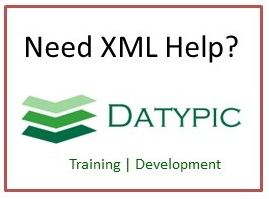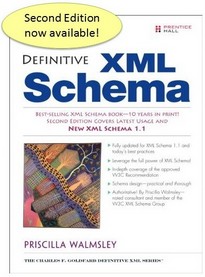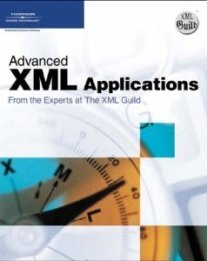EmployeeWorkScheduleBaseType
Complex type information
Namespace: http://www.openapplications.org/oagis/10
Schema document: Common.xsd
Properties: ID: oagis-id-1dbef6a868ed4ab485d0be937d9552b5
Content
- Sequence [1..1]
- ID [0..1] Is the Identifiers of the given instance of an entity within the scope of the integration. The schemeAgencyID attribute identifies the party that provided or knows this party by the given identifier.
- RevisionID [0..1] Is the revision of the semantically named document. The combination of the ID and its revision uniquely identifies the associated entity.
- VariationID [0..1]
- DocumentIDSet [0..*]
- LastModificationDateTime [0..1] The datetime on which the object was last modified
- DocumentDateTime [0..1] The date that document was created within the system of record.
- Description [0..*]
- Note [0..*]
- DocumentReference [0..*]
- Attachment [0..*] The Attachment represents binary data files that may be included within a BOD. These files replace the paper specifications and drawings attached to a BOD definition to clearly communicate design requirements. This Data Type is optional. Attachment usage is further defined by its position.
- Employee [0..1] Specifies details of a specific employee
- ContractReference [0..1] Is a reference to a contract
- AbsenceTypeCode [0..1] This describes the type of absence a worker is reporting in a time and attendance collection process
- OverTimeIndicator [0..1] This is used to identify work subject to overtime processing.
- ScheduleTypeCode [0..1] ScheduleType is a code or identifier that describes the specific schedule and can be used in a variety of contexts. When used in the context of employee, ScheduleType refers to the specific schedule for the employee or worker. When used in the context of a Schedule, ScheduleType indicates whether the Schedule is a demand schedule from a customer or a supply schedule from a supplier. Valid values for this context are: “Demand”, “Supplier”
- WageTypeCode [0..1] This is a code that describes the specific type a wage an employee or worker is paid. Examples include: codes that represent: Exempt from Overtime, Non-Exempt from Overtime
- WageGroupCode [0..1] This is used to clategorize an employee’s wage.
- WorkShiftID [0..1] This is the Employee Shift Identifier. ShiftID describes the regular or standard authorized work time for the employee
- WorkLocation [0..1] Location where work is assigned or reported to be performed.
- WorkTimePeriod [0..1] This is the period of time for which work has been assigned or is being reported
- GLEntityID [0..1] A G/L entity is the smallest organizational unit for which individual financial statements must be drawn up according to relevant commercial law. It is normally the primary balancing segment of the GL Account structure. Typically, this is the owning entity for the transaction. Synonyms are Business Unit, Fund, G/L Company, Joint Venture, Non-Profit Association Name
from type DocumentIdentificationBaseTypefrom type HeaderBaseTypefrom group FreeFormTextGroupfrom group ReferencesGroupfrom group CommonTimeReporting
Attributes
| Name | Occ | Type | Description | Notes |
|---|---|---|---|---|
| typeCode | [0..1] | CodeType_1E7368 | ||
| actionCode | [0..1] | ActionCodeContentType |
Used by
- Element EmployeeWorkSchedule via derived type EmployeeWorkScheduleType
Type inheritance chain
- DocumentIdentificationBaseType
- HeaderBaseType
- EmployeeWorkScheduleBaseType
- extended by EmployeeWorkScheduleType
- EmployeeWorkScheduleBaseType
- HeaderBaseType



